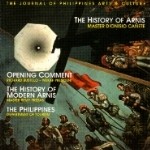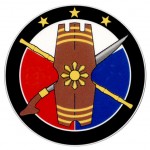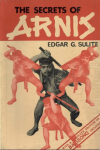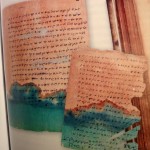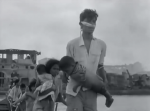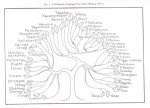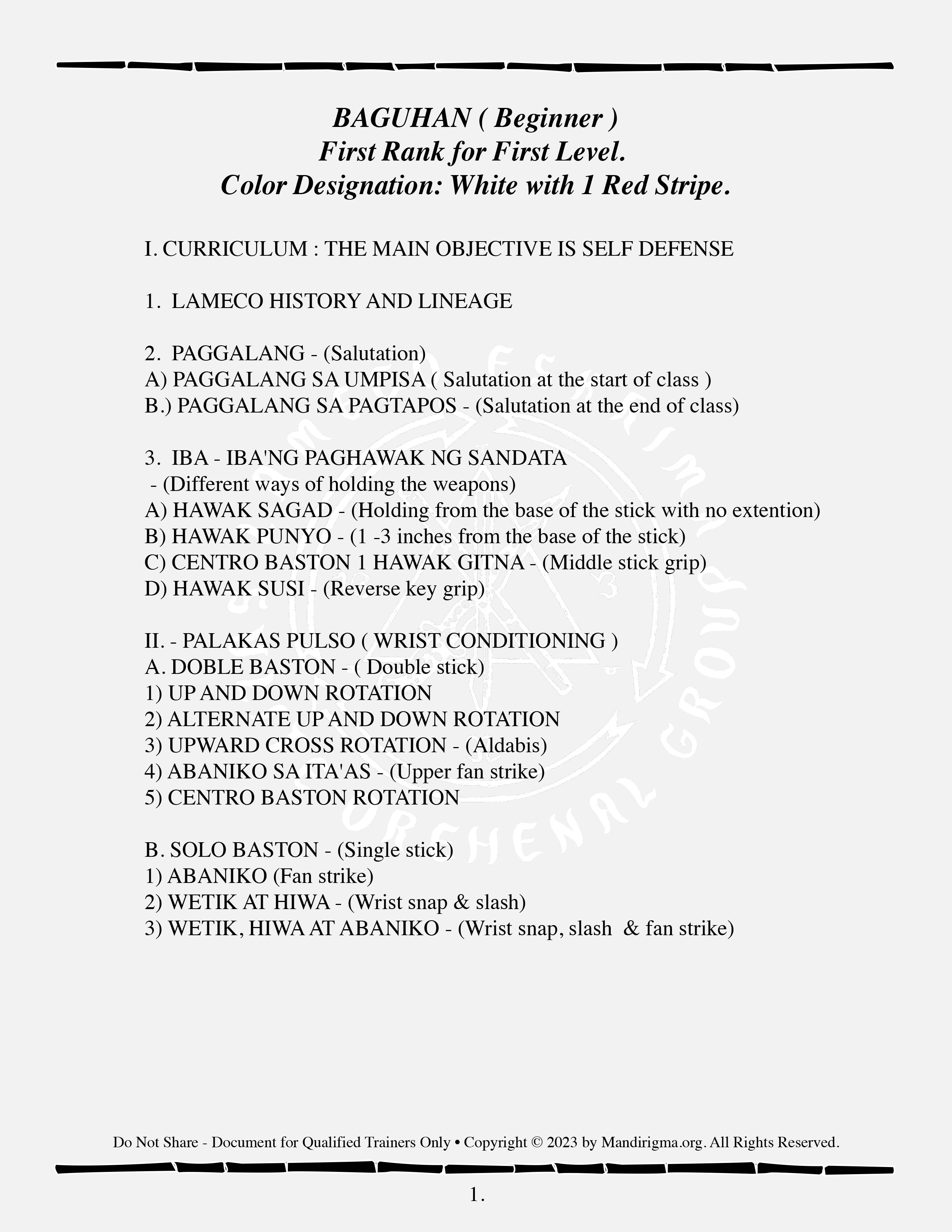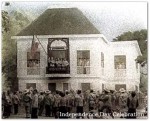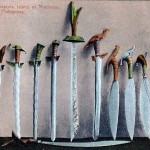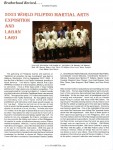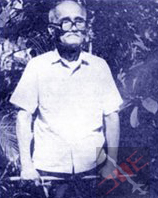
Grandmaster Jose Diaz Caballero was born on August 7, 1907 in Barrio Ibo, Toledo City, Cebu Province in the Philippine archipelago. As a youth he would travel from barangay (neighborhood) to barangay in order to watch eskrima matches during fiesta celebrations. These demonstrations mostly pre-arranged sparring called De Cadena were more of a cultural presentation than a display of real fighting which he was doggedly searching for.
From his observations of these Eskrima exhibitions, he modified the moves with an emphasis on three striking levels: the eyes, lower arms (specifically elbows and hands), and knees. He was a fan of Western movies and often compared his style to the gunslinger “quick draw”. He later founded the devastating style known as De Campo Uno-Dos-Tres Orihinal.
In his prime, Jose Caballero was the Juego Todo champion. Juego Todo was all-out, no-holds-barred and did not allow the combatants to wear any protective gear like masks and armour. Death and permanent injury resulting from these duels was not uncommon.
He beat many highly skilled Eskrimadors such as: Simeon Saavedra of Talisay, Balbino Mancao, Vicente Labor, Juan Carolla of Ilocos, Alfredo Macalolan of Negros, Tanciong Lopez from Cebu City, Salomon Canonio, Heneroso Carbajosa, Horje Navajo, Pastor Hingoyon and many lesser known challengers.
One of his more notable fights took place in 1936 against an Eskrimador named Anoy, from the nearby town of Tangub. Jose Caballero utilized his system of 1-2-3 strikes in order to disarm and wound the stunned Anoy, who promptly surrendered. The combination of strikes was delivered so quickly, that the crowd had not fully understood what had just taken place. This resulted in the perception that the match was fixed, and they began shouting “TAYOPE!” (fixed).
Unlike many so-called death match “duelists” and “unbeaten champions” who can’t even recall the names of the opponents they conquered, the foregoing list of eskrimadors vanquished by GM Caballero is a testament of the authenticity of his title as the Juego Todo champion of his era. No less than GM Filemon “Momoy” Canete of San Miguel Eskrima a good friend of GM Caballero once vouched: “Dili ko makig duwa ana imong eskrima Joe, pangpatay man nag sawa.” (I won’t fool around with your eskrima Joe, it’s for killing pythons.)
Grandmaster Caballero served in the Philippine Constabulary and was once assigned to the hostile Moro country of Lanao province. After his retirement from the Constabulary, he continued to teach his brand of Eskrima, and at the same time, the challenges that were part and parcel of the art continued to hound him.
The remaining living witness to GM Caballero’s Juego Todo duels is Egmidio Tubal a retired PC soldier of Davao City.
The old warrior died on August 24 1987
